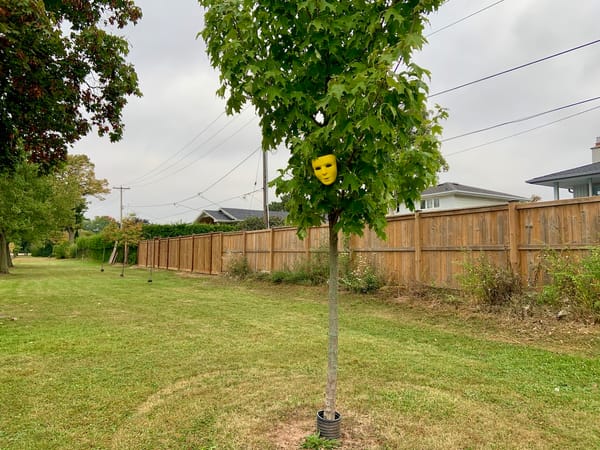the murmur of bees
"... it doesn't matter whether time passes slowly or quickly. What you can be sure of is that, in the end, all you want is to have more." ~ The Murmur of Bees by Sofía Segovia

I spent a glorious week immersed in the reading of 'The Murmur of Bees', a translated version of the work of Mexican author, Sofía Segovia, who originally wrote the novel in Spanish.
This past month alone I had started reading three books only to stop within 50 pages or so. The older I've gotten and the more I've read, the more selective I have become when it comes to the books I like to read. I'd like to say, more 'discerning', but that's not true. That would imply that some kinds of books are better than others, but to be fair, there are many books I'd have read and enjoyed a few years ago, but now I want something else.
Some of the genres I used to devour but no longer enjoy reading are fantasy (gasp!), thrillers, mysteries, cop/detective stories.
Through my continuing learning of the craft of writing, I have come to understand that people who love these genres are typically those seeking justice in fiction, the kind of justice that is sorely missing from the real world. In a world where innocents suffer and criminals seem to get away with their crimes, it is very satisfying to read a story in which the bad guy gets caught and the innocent one is avenged.
I used to enjoy these stories very much, but I no longer want to read about the kind of physical violence one person is capable of inflicting on another.
Instead, the kind of stories that I continue to adore are these long, rambling ones with lots of characters, several intertwining stories, spread across generations. Stories that have a lot of emotional depth to them.
Reading books like these is like spending time with a friend who is in no hurry to go back home and attend to her chores, but has chosen to spend this day, this afternoon or evening, with me and only me, ready and willing to give me her entire attention and not demanding anything but my full presence and attention in return.
And The Murmur of Bees was one such book.
The blurb itself gives away nothing. It talks of an old woman, Nana Reja, who finds a baby abandoned under a bridge and covered in a living blanket of bees. The child, Simonopio, is brought up by the Morales family, and as he grows up, it becomes apparent that he can see visions of what will befall the family, both the good times and the bad.
Oh, but this is not even a tiny fraction of the story. It is the undercurrent, yes, but the story is so much richer and delves into the lives of so many of these characters and their children's, against the backdrop of the 1918 influenza pandemic (which is also only a small part of the entire story) and the broader Mexican revolution with a focus on agrarian and land ownership issues.
Oh, I don't even want to say the above things because no matter what I say, it will fail to capture the breadth and scope of the novel, which is so much more than any of the above incidents alone. It is the story of a family's lifetime. The lifetimes of various members of the family, of the people who work for them, of the people who weave in and out of their lives.
I found myself reading the book, curious to know what will happen next, but also not wanting to read too fast because I didn't want it to end. Segovia employs simple words, but her expressions of emotions are so raw and soul-stirring, it was a treat to delve into it all, soak it all up.
The book was published in 2015, so I found it even more amazing that her description of the pandemic and the people's experiences through it so easily captured what all of us are experiencing right now. The isolation. Too many loved ones living too closely for comfort.
The story is mostly told from various third-person points of view, but it is also interspersed with a first-person narration and for the longest time I couldn't even guess who the narrator was. It all added to the intrigue and allure of the tale.
I finished reading the book last night and predictably, I woke up this morning with a heavy heart. I shed a lot of tears. I am sad that the book has ended, that I have come to the end of the tale, that my journey with these characters has come to an end. I loved each and every one of them, with their quirks and desires and the different ways in which their lives unfold.
I will leave you with this passage that comes at approximately the halfway mark in the book.
It's been an incredibly long time since I was last in these parts, but I don't think the journey ever felt shorter. At my age, one realizes that time is a cruel and fickle master, for the more you want it, the faster it appears to vanish, and vice versa: the more you want to escape it, the more stagnant it becomes. We are its slaves–or its puppets, if you prefer–and it moves or paralyzes us at its whim. Today, for instance, I would like to reach the end of this story, so I wish I could have more time–that time would slow down. You, on the other hand, might want this ** you've just met to be quiet so that you can put on your music or think about something else, so perhaps your journey is taking forever.
But let me tell you what I know, what I've concluded: it doesn't matter whether time passes slowly or quickly. What you can be sure of is that, in the end, all you want is to have more. More of those lazy afternoons when nothing happens, despite your best efforts to the contrary. More of those annoying arms that picked you up to stop you doing something crazy. More tellings-off from the mother who you thought was a nag. More glimpses, even, of your father hurrying somewhere, always busy. More soft embraces from the wife who loved you all your life, and more trusting looks from your children's young eyes.
~ The Murmur of Bees by Sofía Segovia
** The words here would have given away the identity of the first-person protagonist, and not knowing who it is at the outset was one of the very charming things about this book. I certainly don't wish to spoil that for you.
And even the above excerpt can tell you only so little about the book itself.
I think everyone should have a Simonopio in their lives. A sort of guardian angel. A guiding light. Someone who can see what lies in wait. Someone who can look out for you and protect you and your loved ones, or at least give his all in trying to do that even if he may not always succeed.
I am very sad that the tale of Simonopio has come to an end. I am very sad that in my own life I miss the companionship and safety that comes with the presence of a friend, the physical presence of a true friend, even though virtual relationships are about as real as things seem to have become in these times.
Because what I yearn for is not the conversations, but the soft silence that comes from sitting beside someone who doesn't need words to understand how I feel, who doesn't need to spell out to me what they feel because I understand it all too.
All my fears and insecurities, especially when it comes to writing and parenting. All those questions to which there are no answers. Am I doing it all well? Am I doing enough? Shouldn't I be doing more? Why can't I do more? Why am I unable to do more? Why am I not enough?
I don't seek answers. I just want to share that these are the questions that keep swirling in my head and take me out of this moment, out of the here and the now. All I want is a presence next to me that brings me back to this moment, with all its pain and its longing and its uncertainties, and trust that I can face it all, so that eventually I can trust myself to bear it all with courage. I guess I am asking for an imaginary friend, after all.
Image Attribution: Photo by Anson Aswat on Unsplash




